With advances in technology yielding increased connectivity, more thought than ever is being given to where and how we work. In an initiative led by recruitment firm Bespoke Careers, a collection of real estate executives, interior designers and workplace strategists working across the Asia Pacific region came together for a roundtable discussion at MMosers’s flagship Hong Kong office.
(中文简体版请按此)
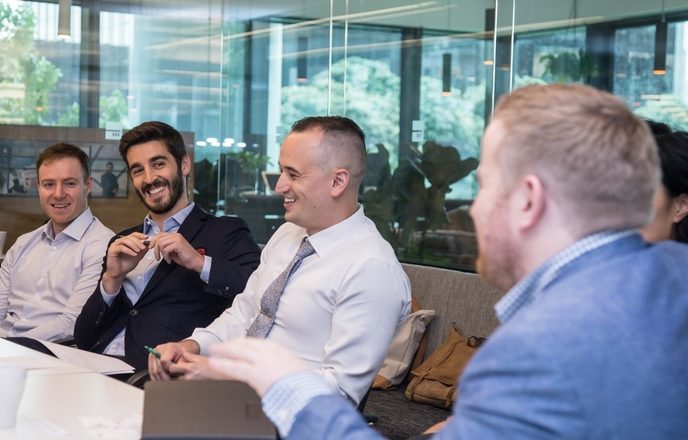
Hosted by Shan Valla-Bradley and Zane Hosgood of Bespoke Careers, and moderated by Jordan Kostelac, Senior Consultant of Strategic Workplace Services at JLL, the roundtable revealed a series of themes and issues relating to the provision of flexible and productive working environments. In attendance were Truddy Cheung, Head of Workplace and Change Management, and Jonny Wright, Associate Director of Flexible Workspace Services at Colliers International; Deborah Negrash, General Manager of Hong Kong’s first branch of Naked Hub which opened in June this year; Audrey Zaimeche, Associate Strategy of M Moser Associates; David Thomas, Associates in Leadership Development; Jared King, Co-founder E3 Reloaded, a Hong Kong-based creative agency that works alongside leading organisations to create change and inspire greatness; and John F. Bowden, Manager of Workplace Strategy, Asia Pacific Region at Microsoft (HK) Ltd.

Why go to work?
Jordan Kostelac kicked off proceedings with a simple question: why do we come to the office? For more and more employees, work is no longer a question of going into an office in the morning, sitting at a desk, grabbing a sandwich for lunch and leaving as the sky darkens. Why work from a desk when you can work from a cafО or from home? The answer may well be as simple as the question: we can do a lot from our technological gadgets from anywhere we choose, but this will never replace the natural human need for collaboration and interaction.
“I like to use the office as a tool and I’m happy to be part of a company that encourages this.”
“If I don’t go into the office it’s because I need to focus, and an open office can be full of interruptions and distractions. I like to use the office as a tool and I’m happy to be part of a company culture that encourages this,” notes Truddy Cheung. It is a sentiment shared by her Colliers colleague, Jonny Wright, who unlike many of his colleagues attends the office only when he needs to meet with his teams, or utilise certain office based resources.
In fast-paced Hong Kong, David Thomas highlights that the concept of convenience is important to employees. For a company on the other hand, its ability to effectively optimise what he refers to ‘the per square foot per employee equation’ is paramount. Indeed, if a workplace strategy is to be successful it needs to meet the demands and preferences of both the employee and employer.
“Workplace strategy is holistic.
Our job is to understand and inspire.”
“At Naked Hub, our focus is on the end user. For us, workplace strategy is holistic. It’s not just about the design, the aesthetics and the ambience of the office, but also the human element that is so crucial,” notes Deborah Negrash. From a design perspective, Audrey Zaimeche agrees: “Whether it’s part of the branding experience that reflects the culture of a large organisation or creating co-working spaces where entrepreneurs can meet with others, our job is to understand our clients and to inspire.”
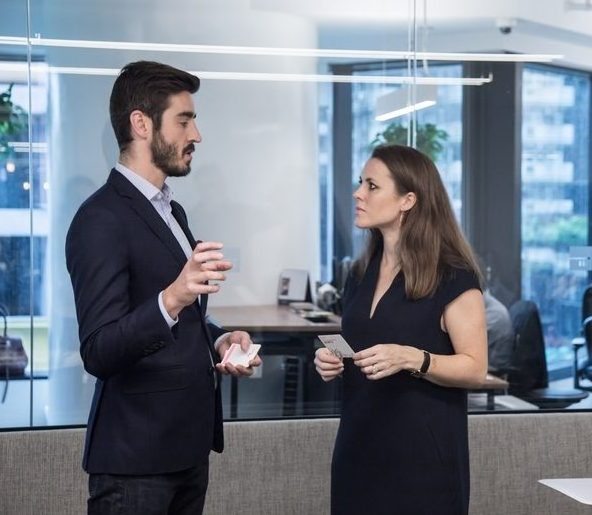
Global versus local
What is clear is that workplace strategy has a lot to do with understanding what people need and want from their workplace and an awareness that what works for one person or department in the same organisation may not work for another. “There is never going to be a one size fits all solution. It has to be about letting people work in a way that is most convenient for them,” observes Wright.
Jared King, who founded E3 six years ago and today also works with coworking group The Hive notes: “A lot of the big corporates have global policies that they try to role out across all international offices without taking into consideration the local context or needs. You might have a direction that you want the organisation to go in but you also need to empower the local teams to interpret and implement the change that’s right for the local business.”
Go forth and collaborate
Negrash elaborates on how plugging into a co-working space connects you to a shared economy. The question is how to make it more enjoyable, more creative, and more collaborative. King agrees, adding that co-working is a rejection of uninspiring workplaces and a sentiment that is expanding quickly across Asia. It represents a new era when compared to that of the industrialage factory mindset.”
While adopting new workplace strategies may come with initial associated costs, the value to the team, as well as the business and bottom line, will almost certainly be offset. Indeed, as Wright notes, there is significant value when a company is agile enough to offer tailored solutions to the diverse needs of a cross-generational and cross cultural workforce.
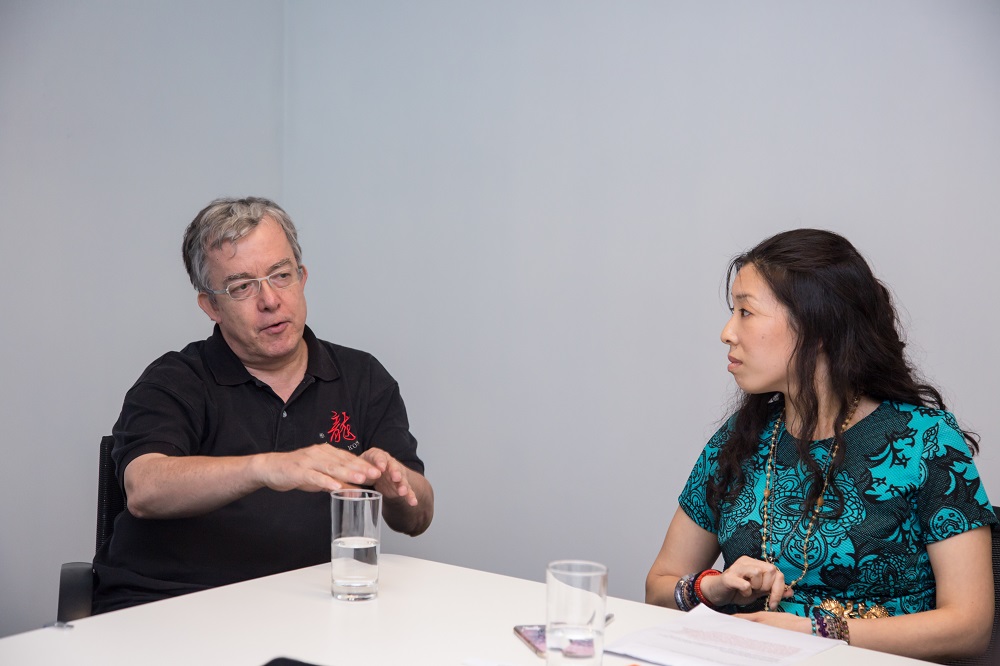
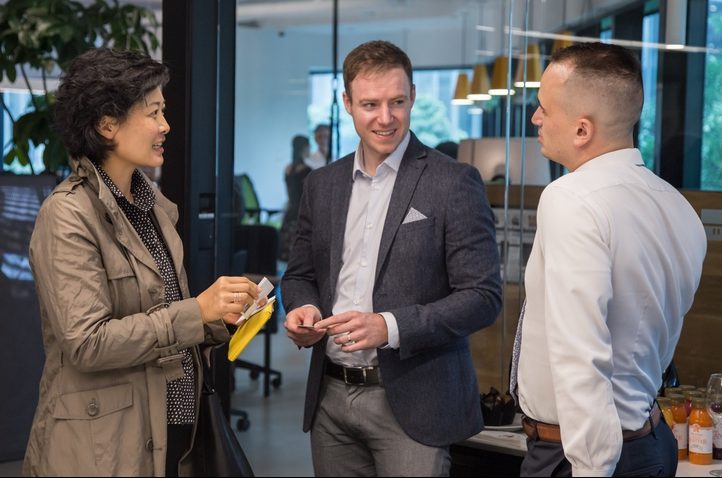
However, as Kostelac points out, while it might easy for a consultant to go into an organisation and say ‘Go forth and collaborate’, if the catalyst for a change management program is cost saving it is important that the proposed strategy is anchored to the true aspirations of the business. Cheung adds that the essence of the co-working industry is somewhat different from the role the workplace strategist has to play in creating solutions that match the business objectives of the client. Both agree that co-working spaces adopt a workplace strategy that serves to drive business to a better place.
Attracting the new generation
From the viewpoint of sourcing talent and the incentives that employees look for when it comes to leaving or joining a company, Valla-Bradley and Hosgood of Bespoke concur that office environment, pay and location are three key factors in a person’s motives to changes jobs. “It can be common for people to jump jobs every year in Hong Kong, and this could be a reflection of Asia businesses often not offering engaging or progressive work place cultures. That said, the driving force behind a person’s decision to leave one job for another can be as simple as who is offering the best salary. In the last few years employers’ awareness of this seems to have peeked and these issues are being addressed in many businesses. However, changing an office culture is challenging if not addressed holistically and from an expert’s perspective.”
“Companies should treat employees the way they treat customers.”
John Bowden of Microsoft, touched on his own observations of why employees have a lack of commitment to their employers and will job hop for small salary increments. He points to greed, ambition and a low attention span being the driving forces. Thomas however points out that it is up to leaders to rise to the challenge of engaging their employees by opening up a dialogue about what they want to do with their careers, how the company can help them achieve their goals and how much of their own time and effort they are prepared to put into enhancing their own capabilities. King agrees, adding that companies should be treating employees in the same way that they are treating customers. “Only once you start thinking this way can you engage with them and breed loyalty,” he adds.
All work and no play?

On Right: Audrey Zaimeche, Associate Strategy of M Moser Associates
So how, as workspaces evolve in the decades ahead, does the idea of being committed to your job, but at the same time needing a distinct separation between work and personal life really play out? For Cheung it’s a question of personal choice. For her it’s the ability to separate her work life from her personal life. Just as she sees the office as a tool rather than a place she has to go to every day, she questions whether it is time we saw the hyperconnectivity that so many of us have all succumbed to every minute of the day in the same way? Jordan aptly concludes, noting that hyper-personalisation and an openness to change is clearly the only way forward when it comes to the developing the workspaces of the future.
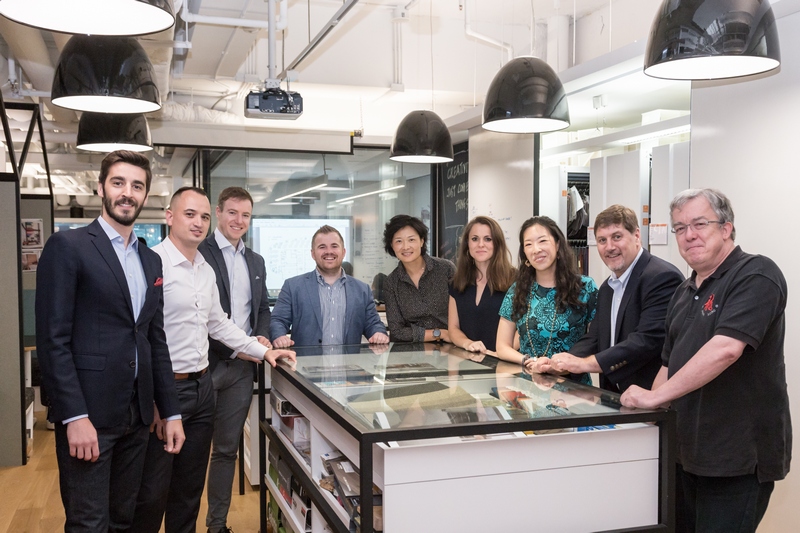
From left to right: Jared King, Co-founder E3 Reloaded; Jordan Kostelac, Senior Consultant of Strategic Workplace Services at JLL; Zane Hosgood, Bespoke Careers; Jonny Wright, Associate Director of Flexible Workspace Services at Colliers International; Truddy Cheung, Head of Workplace and Change Management; Shan Valla-Bradley, Bespoke Careers; Deborah Negrash, General Manager of Hong Kong branch of Naked Hub; David Thomas, Associates in Leadership Development; John F. Bowden, Manager of Workplace Strategy, Asia Pacific Region at Microsoft (HK) Ltd.
More about Bespoke Careers
Photographer: Brian Zhang (ROF Media)
Venue: MMosers Associates Hong Kong Office












